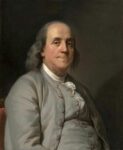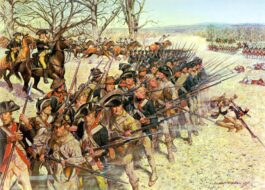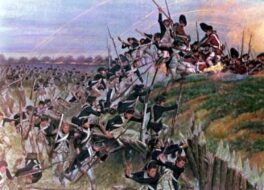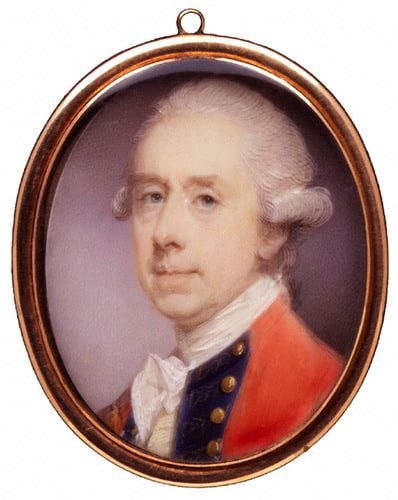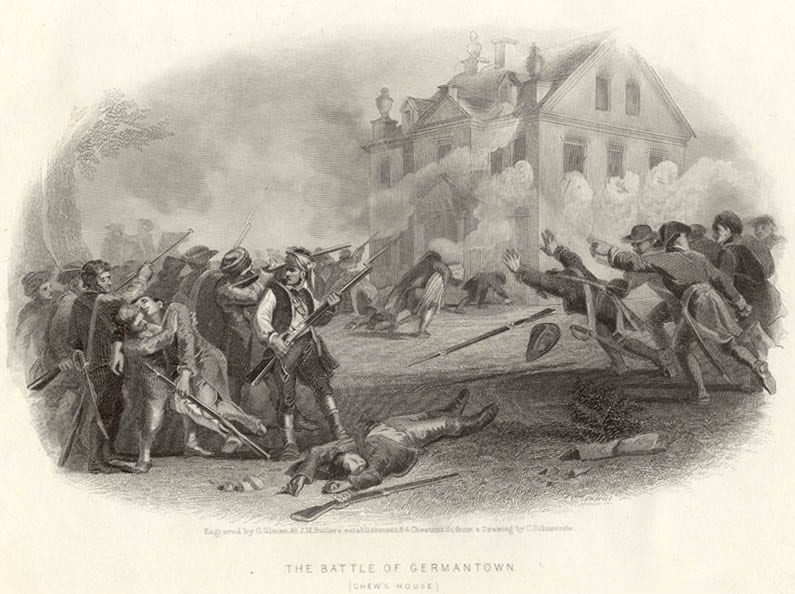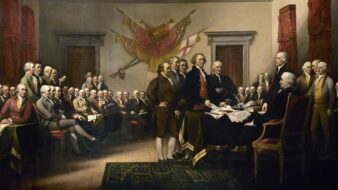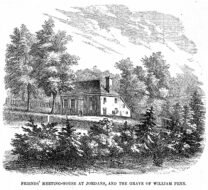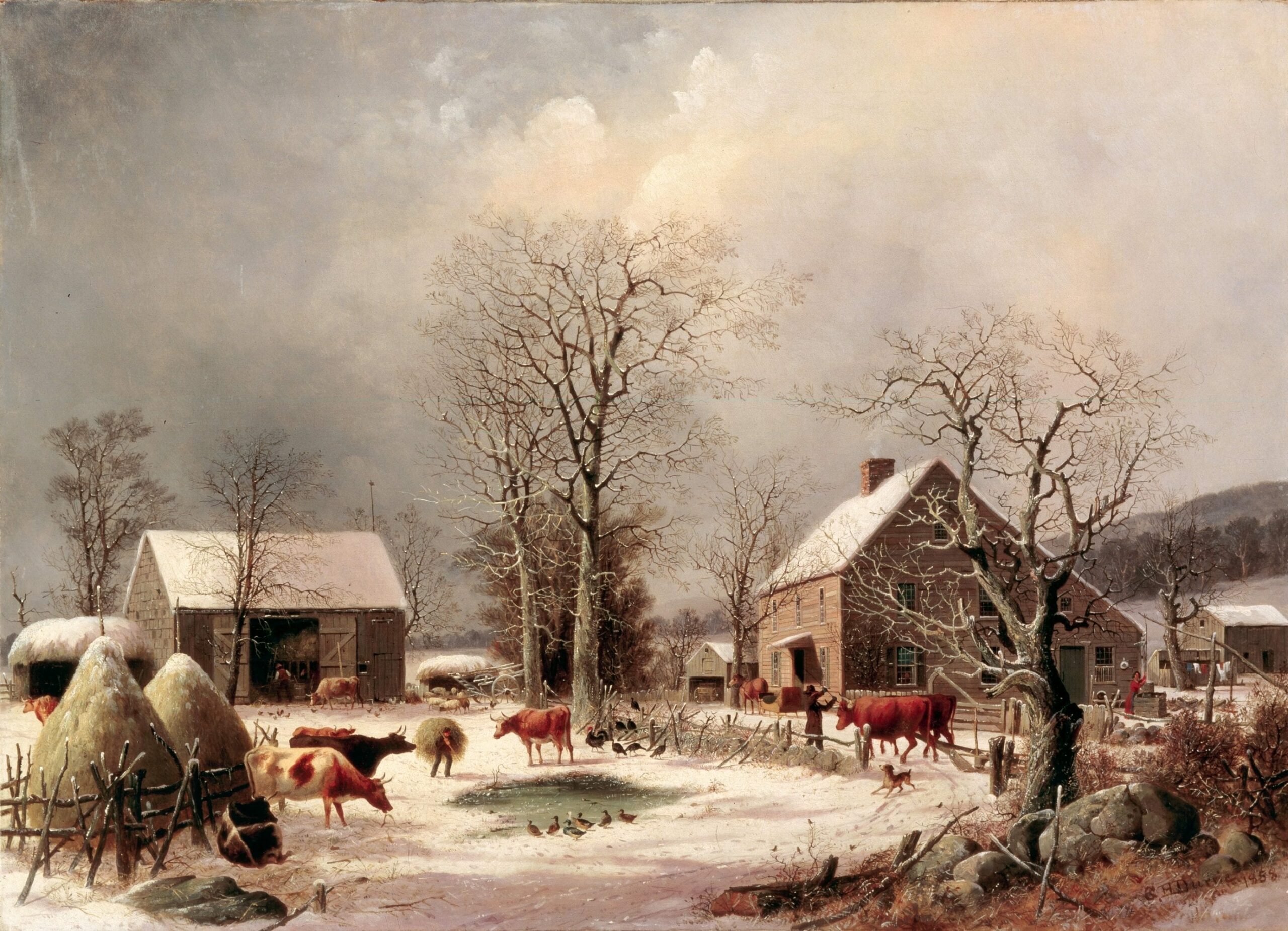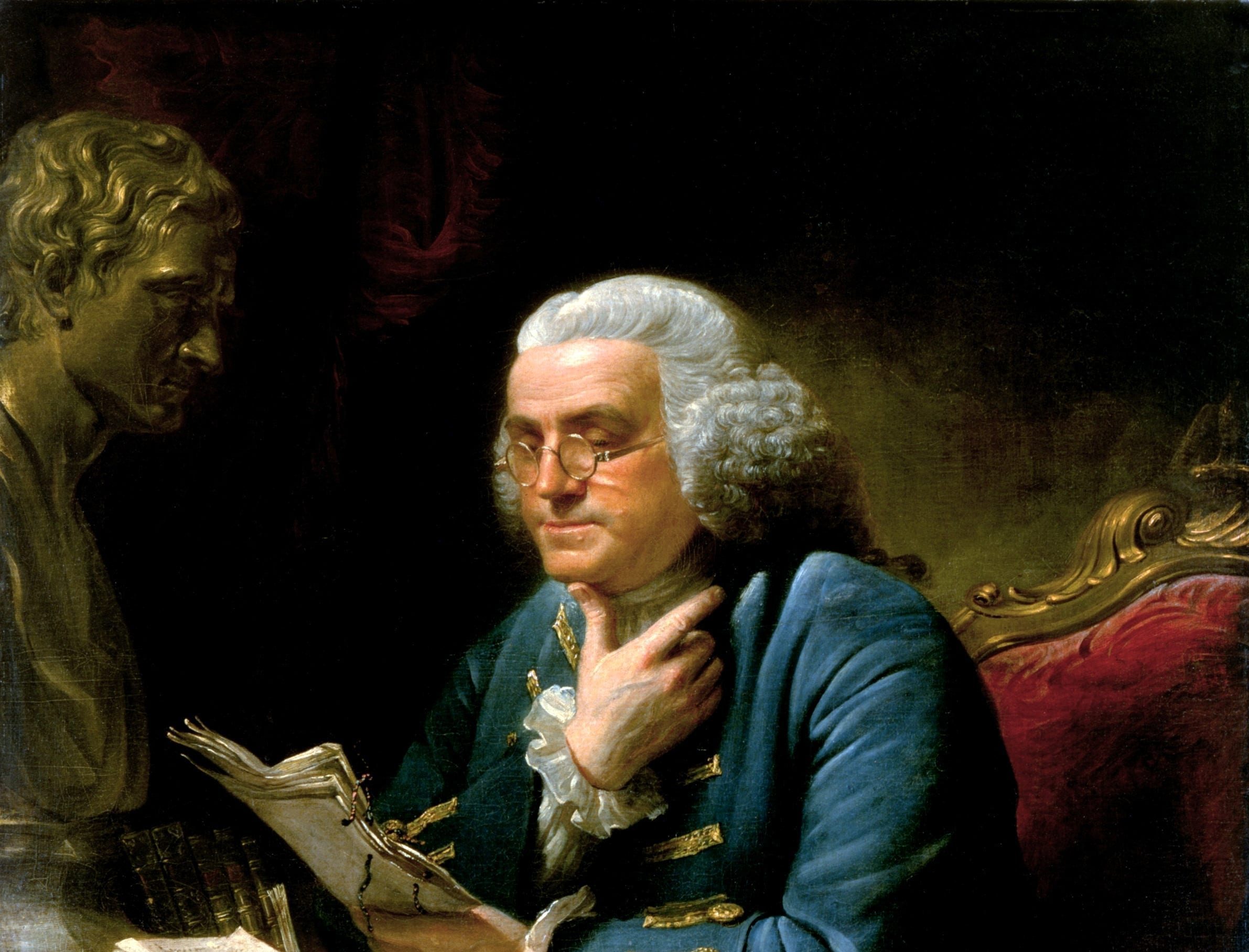
Thomas Jefferson, Notes on the State of Virginia (London: John Stockdale, 1787), 191-214. https://teachingamericanhistory.org/oe73.
Query 13: THE constitution of the state, and its several charters?
. . . The executive powers are lodged in the hands of a governor, chosen annually, and incapable of acting more than three years in seven. He is assisted by a council of eight members. The judiciary powers are divided among several courts, as will be hereafter explained. Legislation is exercised by two houses of assembly, the one called the house of Delegates, composed of two members from each county, chosen annually by the citizens possessing an estate for life in 100 acres of uninhabited land, or 25 acres with a house on it, or in a house or lot in some town: the other called the Senate, consisting of 24 members, chosen quadrennially by the same electors, who for this purpose are distributed into 24 districts. The concurrence of both houses is necessary to the passage of a law. They have the appointment of the governor and council, the judges of the superior courts, auditors, attorney-general, treasurer, register of the land office, and delegates to congress. As the dismemberment of the state had never had its confirmation, but, on the contrary, had always been the subject of protestation and complaint, that it might never be in our own power to raise scruples on that subject, or to disturb the harmony of our new confederacy, the grants to Maryland, Pennsylvania, and the two Carolinas, were ratified.
This constitution was formed when we were new and unexperienced in the science of government. It was the first too which was formed in the whole United States. No wonder then that time and trial have discovered very capital defects in it.
1. The majority of the men in the state, who pay and fight for its support, are unrepresented in the legislature, the roll of freeholders intitled to vote, not including generally the half of those on the roll of the militia, or of the tax-gatherers.
2. Among those who share the representation, the shares are very unequal. Thus the county of Warwick, with only one hundred fighting men, has an equal representation with the county of Loudon, which has 1746. So that every man in Warwick has as much influence in the government as 17 men in Loudon. But lest it should be thought that an equal interspersion of small among large counties, through the whole state, may prevent any danger of injury to particular parts of it, we will divide it into districts, and shew the proportions of land, of fighting men, and of representation in each.
An inspection of this table will supply the place of commentaries on it. It will appear at once that nineteen thousand men, living below the falls of the rivers, possess half the senate, and want four members only of possessing a majority of the house of delegates; a want more than supplied by the vicinity of their situation to the seat of government, and of course the greater degree of convenience and punctuality with which their members may and will attend in the legislature. These nineteen thousand, therefore, living in one part of the country, give law to upwards of thirty thousand, living in another, and appoint all their chief officers executive and judiciary. From the difference of their situation and circumstances, their interests will often be very different.
3. The senate is, by its constitution, too homogeneous with the house of delegates. Being chosen by the same electors, at the same time, and out of the same subjects, the choice falls of course on men of the same description. The purpose of establishing different houses of legislation is to introduce the influence of different interests or different principles. Thus in Great-Britain it is said their constitution relies on the house of commons for honesty, and the lords for wisdom; which would be a rational reliance if honesty were to be bought with money, and if wisdom were hereditary. In some of the American states the delegates and senators are so chosen, as that the first represent the persons, and the second the property of the state. But with us, wealth and wisdom have equal chance for admission into both houses. We do not therefore derive from the separation of our legislature into two houses, those benefits which a proper complication of principles is capable of producing, and those which alone can compensate the evils which may be produced by their dissensions.
4. All the powers of government, legislative, executive, and judiciary, result to the legislative body. The concentrating these in the same hands is precisely the definition of despotic government. It will be no alleviation that these powers will be exercised by a plurality of hands, and not by a single one. 173 despots would surely be as oppressive as one. Let those who doubt it turn their eyes on the republic of Venice. As little will it avail us that they are chosen by ourselves. An elective despotism was not the government we fought for; but one which should not only be founded on free principles, but in which the powers of government should be so divided and balanced among several bodies of magistracy, as that no one could transcend their legal limits, without being effectually checked and restrained by the others. For this reason that convention, which passed the ordinance of government, laid its foundation on this basis, that the legislative, executive and judiciary departments should be separate and distinct, so that no person should exercise the powers of more than one of them at the same time. But no barrier was provided between these several powers. The judiciary and executive members were left dependant on the legislative, for their subsistence in office, and some of them for their continuance in it. If therefore the legislature assumes executive and judiciary powers, no opposition is likely to be made; nor, if made, can it be effectual; because in that case they may put their proceedings into the form of an act of assembly, which will render them obligatory on the other branches. They have accordingly, in many instances, decided rights which should have been left to judiciary controversy: and the direction of the executive, during the whole time of their session, is becoming habitual and familiar. And this is done with no ill intention. The views of the present members are perfectly upright. When they are led out of their regular province, it is by art in others, and inadvertence in themselves. And this will probably be the case for some time to come. But it will not be a very long time. Mankind soon learn to make interested uses of every right and power which they possess, or may assume. The public money and public liberty, intended to have been deposited with three branches of magistracy, but found inadvertently to be in the hands of one only, will soon be discovered to be sources of wealth and dominion to those who hold them; distinguished too by this tempting circumstance, that they are the instrument, as well as the object of acquisition. With money we will get men, said Caesar, and with men we will get money. Nor should our assembly be deluded by the integrity of their own purposes, and conclude that these unlimited powers will never be abused, because themselves are not disposed to abuse them. They should look forward to a time, and that not a distant one, when corruption in this, as in the country from which we derive our origin, will have seized the heads of government, and be spread by them through the body of the people; when they will purchase the voices of the people, and make them pay the price. Human nature is the same on every side of the Atlantic, and will be alike influenced by the same causes. The time to guard against corruption and tyranny, is before they shall have gotten hold on us. It is better to keep the wolf out of the fold, than to trust to drawing his teeth and talons after he shall have entered. To render these considerations the more cogent, we must observe in addition,
5. That the ordinary legislature may alter the constitution itself. On the discontinuance of assemblies, it became necessary to substitute in their place some other body, competent to the ordinary business of government, and to the calling forth the powers of the state for the maintenance of our opposition to Great-Britain. Conventions were therefore introduced, consisting of two delegates from each county, meeting together and forming one house, on the plan of the former house of Burgesses, to whose places they succeeded. These were at first chosen anew for every particular session. But in March 1775, they recommended to the people to chuse a convention, which should continue in office a year. This was done accordingly in April 1775, and in the July following that convention passed an ordinance for the election of delegates in the month of April annually. It is well known, that in July 1775, a separation from Great-Britain and establishment of Republican government had never yet entered into any person’s mind. A convention therefore, chosen under that ordinance, cannot be said to have been chosen for purposes which certainly did not exist in the minds of those who passed it. Under this ordinance, at the annual election in April 1776, a convention for the year was chosen. Independance, and the establishment of a new form of government, were not even yet the objects of the people at large. One extract from the pamphlet called Common Sense had appeared in the Virginia papers in February, and copies of the pamphlet itself had got into a few hands. But the idea had not been opened to the mass of the people in April, much less can it be said that they had made up their minds in its favor. So that the electors of April 1776, no more than the legislators of July 1775, not thinking of independance and a permanent republic, could not mean to vest in these delegates powers of establishing them, or any authorities other than those of the ordinary legislature. So far as a temporary organization of government was necessary to render our opposition energetic, so far their organization was valid. But they received in their creation no powers but what were given to every legislature before and since. They could not therefore pass an act transcendant to the powers of other legislatures. If the present assembly pass any act, and declare it shall be irrevocable by subsequent assemblies, the declaration is merely void, and the act repealable, as other acts are. So far, and no farther authorized, they organized the government by the ordinance entitled a Constitution or Form of government. It pretends to no higher authority than the other ordinances of the same session; it does not say, that it shall be perpetual; that it shall be unalterable by other legislatures; that it shall be transcendant above the powers of those, who they knew would have equal power with themselves. Not only the silence of the instrument is a proof they thought it would be alterable, but their own practice also: for this very convention, meeting as a House of Delegates in General Assembly with the new Senate in the autumn of that year, passed acts of assembly in contradiction to their ordinance of government; and every assembly from that time to this has done the same. I am safe therefore in the position, that the constitution itself is alterable by the ordinary legislature. Though this opinion seems founded on the first elements of common sense, yet is the contrary maintained by some persons. 1. Because, say they, the conventions were vested with every power necessary to make effectual opposition to Great-Britain. But to complete this argument, they must go on, and say further, that effectual opposition could not be made to Great-Britain, without establishing a form of government perpetual and unalterable by the legislature; which is not true. An opposition which at some time or other was to come to an end, could not need a perpetual institution to carry it on: and a government, amendable as its defects should be discovered, was as likely to make effectual resistance, as one which should be unalterably wrong. Besides, the assemblies were as much vested with all powers requisite for resistance as the conventions were. If therefore these powers included that of modelling the form of government in the one case, they did so in the other. The assemblies then as well as the conventions may model the government; that is, they may alter the ordinance of government. 2. They urge, that if the convention had meant that this instrument should be alterable, as their other ordinances were, they would have called it an ordinance: but they have called it a constitution, which ex vi termini means ’an act above the power of the ordinary legislature.’ I answer that constitutio, constitutum, statutum, lex, are convertible terms. ’Constitutio dicitur jus quod a principe conditur. ’Constitutum, quod ab imperatoribus rescriptum statutumve est.’ ’Statutum, idem quod lex.’ Calvini Lexicon juridicum. Constitution and statute were originally terms of the (* 7) civil law, and from thence introduced by Ecclesiastics into the English law. Thus in the statute 25 Hen. 8. c. 19. (symbol omitted). 1. `Constitutions and ordinances’ are used as synonimous. The term constitution has many other significations in physics and in politics; but in Jurisprudence, whenever it is applied to any act of the legislature, it invariably means a statute, law, or ordinance, which is the present case. No inference then of a different meaning can be drawn from the adoption of this title: on the contrary, we might conclude, that, by their affixing to it a term synonimous with ordinance, or statute, they meant it to be an ordinance or statute. But of what consequence is their meaning, where their power is denied? If they meant to do more than they had power to do, did this give them power? It is not the name, but the authority which renders an act obligatory. Lord Coke says, ’an article of the statute 11 R. 2. c. 5. that no person should attempt to revoke any ordinance then made, is repealed, for that such restraint is against the jurisdiction and power of the parliament. ’4. inst. 42. and again, ’though divers parliaments have attempted to restrain subsequent parliaments, yet could they never effect it; for the latter parliament hath ever power to abrogate, suspend, qualify, explain, or make void the former in the whole or in any part thereof, notwithstanding any words of restraint, prohibition, or penalty, in the former: for it is a maxim in the laws of the parliament, quod leges posteriores priores contrarias abrogant. ’4. inst. 43. ’ To get rid of the magic supposed to be in the word constitution, let us translate it into its definition as given by those who think it above the power of the law; and let us suppose the convention instead of saying, ’We, the ordinary legislature, establish a constitution, ’had said,’ We, the ordinary legislature, establish an act above the power of the ordinary legislature. ’Does not this expose the absurdity of the attempt? 3. But, say they, the people have acquiesced, and this has given it an authority superior to the laws. It is true, that the people did not rebel against it: and was that a time for the people to rise in rebellion? Should a prudent acquiescence, at a critical time, be construed into a confirmation of every illegal thing done during that period? Besides, why should they rebel? At an annual election, they had chosen delegates for the year, to exercise the ordinary powers of legislation, and to manage the great contest in which they were engaged. These delegates thought the contest would be best managed by an organized government. They therefore, among others, passed an ordinance of government. They did not presume to call it perpetual and unalterable. They well knew they had no power to make it so; that our choice of them had been for no such purpose, and at a time when we could have no such purpose in contemplation. Had an unalterable form of government been meditated, perhaps we should have chosen a different set of people. There was no cause then for the people to rise in rebellion. But to what dangerous lengths will this argument lead? Did the acquiescence of the colonies under the various acts of power exercised by Great-Britain in our infant state, confirm these acts, and so far invest them with the authority of the people as to render them unalterable, and our present resistance wrong? On every unauthoritative exercise of power by the legislature, must the people rise in rebellion, or their silence be construed into a surrender of that power to them? If so, how many rebellions should we have had already? One certainly for every session of assembly. The other states in the Union have been of opinion, that to render a form of government unalterable by ordinary acts of assembly, the people must delegate persons with special powers. They have accordingly chosen special conventions to form and fix their governments. The individuals then who maintain the contrary opinion in this country, should have the modesty to suppose it possible that they may be wrong and the rest of America right. But if there be only a possibility of their being wrong, if only a plausible doubt remains of the validity of the ordinance of government, is it not better to remove that doubt, by placing it on a bottom which none will dispute? If they be right, we shall only have the unnecessary trouble of meeting once in convention. If they be wrong, they expose us to the hazard of having no fundamental rights at all. True it is, this is no time for deliberating on forms of government. While an enemy is within our bowels, the first object is to expel him. But when this shall be done, when peace shall be established, and leisure given us for intrenching within good forms, the rights for which we have bled, let no man be found indolent enough to decline a little more trouble for placing them beyond the reach of question. If any thing more be requisite to produce a conviction of the expediency of calling a convention, at a proper season, to fix our form of government, let it be the reflection.
6. That the assembly exercises a power of determining the Quorum of their own body which may legislate for us. After the establishment of the new form they adhered to the Lex majoris partis, founded in (* 8) common law as well as common right. It is the (* 9) natural law of every assembly of men, whose numbers are not fixed by any other law. They continued for some time to require the presence of a majority of their whole number, to pass an act. But the British parliament fixes its own quorum: our former assemblies fixed their own quorum: and one precedent in favour of power is stronger than an hundred against it. The house of delegates therefore have (* 10) lately voted that, during the present dangerous invasion, forty members shall be a house to proceed to business. They have been moved to this by the fear of not being able to collect a house. But this danger could not authorize them to call that a house which was none: and if they may fix it at one number, they may at another, till it loses its fundamental character of being a representative body...
...In December 1776, our circumstances being much distressed, it was proposed in the house of delegates to create a dictator, invested with every power legislative, executive and judiciary, civil and military, of life and of death, over our persons and over our properties: and in June 1781, again under calamity, the same proposition was repeated, and wanted a few votes only of being passed. --One who entered into this contest from a pure love of liberty, and a sense of injured rights, who determined to make every sacrifice, and to meet every danger, for the re-establishment of those rights on a firm basis, who did not mean to expend his blood and substance for the wretched purpose of changing this master for that, but to place the powers of governing him in a plurality of hands of his own choice, so that the corrupt will of no one man might in future oppress him, must stand confounded and dismayed when he is told, that a considerable portion of that plurality had meditated the surrender of them into a single hand, and, in lieu of a limited monarch, to deliver him over to a despotic one! How must we find his efforts and sacrifices abused and baffled, if he may still by a single vote be laid prostrate at the feet of one man! In God’s name, from whence have they derived this power? Is it from our ancient laws? None such can be produced. Is it from any principle in our new constitution, expressed or implied? Every lineament of that expressed or implied, is in full opposition to it. Its fundamental principle is, that the state shall be governed as a commonwealth. It provides a republican organization, proscribes under the name of prerogative the exercise of all powers undefined by the laws; places on this basis the whole system of our laws; and, by consolidating them together, chuses that they shall be left to stand or fall together, never providing for any circumstances, nor admitting that such could arise, wherein either should be suspended, no, not for a moment. Our antient laws expressly declare, that those who are but delegates themselves shall not delegate to others powers which require judgment and integrity in their exercise. --Or was this proposition moved on a supposed right in the movers of abandoning their posts in a moment of distress? The same laws forbid the abandonment of that post, even on ordinary occasions; and much more a transfer of their powers into other hands and other forms, without consulting the people. They never admit the idea that these, like sheep or cattle, may be given from hand to hand without an appeal to their own will. --Was it from the necessity of the case? Necessities which dissolve a government, do not convey its authority to an oligarchy or a monarchy. They throw back, into the hands of the people, the powers they had delegated, and leave them as individuals to shift for themselves. A leader may offer, but not impose himself, nor be imposed on them. Much less can their necks be submitted to his sword, their breath be held at his will or caprice. The necessity which should operate these tremendous effects should at least be palpable and irresistible. Yet in both instances, where it was feared, or pretended with us, it was belied by the event. It was belied too by the preceding experience of our sister states, several of whom had grappled through greater difficulties without abandoning their forms of government. When the proposition was first made, Massachusets had found even the government of committees sufficient to carry them through an invasion. But we at the time of that proposition were under no invasion. When the second was made, there had been added to this example those of Rhode-Island, New-York, New-Jersey, and Pennsylvania, in all of which the republican form had been found equal to the task of carrying them through the severest trials. In this state alone did there exist so little virtue, that fear was to be fixed in the hearts of the people, and to become the motive of their exertions and the principle of their government? The very thought alone was treason against the people; was treason against mankind in general; as rivetting for ever the chains which bow down their necks, by giving to their oppressors a proof, which they would have trumpeted through the universe, of the imbecility of republican government, in times of pressing danger, to shield them from harm. Those who assume the right of giving away the reins of government in any case, must be sure that the herd, whom they hand on to the rods and hatchet of the dictator, will lay their necks on the block when he shall nod to them. But if our assemblies supposed such a resignation in the people, I hope they mistook their character. I am of opinion, that the government, instead of being braced and invigorated for greater exertions under their difficulties, would have been thrown back upon the bungling machinery of county committees for administration, till a convention could have been called, and its wheels again set into regular motion. What a cruel moment was this for creating such an embarrassment, for putting to the proof the attachment of our countrymen to republican government! Those who meant well, of the advocates for this measure, (and most of them meant well, for I know them personally, had been their fellow-labourers in the common cause, and had often proved the purity of their principles), had been seduced in their judgment by the example of an ancient republic, whose constitution and circumstances were fundamentally different. They had sought this precedent in the history of Rome, where alone it was to be found, and where at length too it had proved fatal. They had taken it from a republic, rent by the most bitter factions and tumults, where the government was of a heavy-handed unfeeling aristocracy, over a people ferocious, and rendered desperate by poverty and wretchedness; tumults which could not be allayed under the most trying circumstances, but by the omnipotent hand of a single despot. Their constitution therefore allowed a temporary tyrant to be erected, under the name of a Dictator; and that temporary tyrant, after a few examples, became perpetual. They misapplied this precedent to a people, mild in their dispositions, patient under their trial, united for the public liberty, and affectionate to their leaders. But if from the constitution of the Roman government there resulted to their Senate a power of submitting all their rights to the will of one man, does it follow, that the assembly of Virginia have the same authority? What clause in our constitution has substituted that of Rome, by way of residuary provision, for all cases not otherwise provided for? Or if they may step ad libitum into any other form of government for precedents to rule us by, for what oppression may not a precedent be found in this world of the bellum omnium in omnia? --Searching for the foundations of this proposition, I can find none which may pretend a colour of right or reason, but the defect before developed, that there being no barrier between the legislative, executive, and judiciary departments, the legislature may seize the whole: that having seized it, and possessing a right to fix their own quorum, they may reduce that quorum to one, whom they may call a chairman, speaker, dictator, or by any other name they please. --Our situation is indeed perilous, and I hope my countrymen will be sensible of it, and will apply, at a proper season, the proper remedy; which is a convention to fix the constitution, to amend its defects, to bind up the several branches of government by certain laws, which when they transgress their acts shall become nullities; to render unnecessary an appeal to the people, or in other words a rebellion, on every infraction of their rights, on the peril that their acquiescence shall be construed into an intention to surrender those rights.
(* 1) Art. 4.
(* 2) Art. 7.
(* 3) Art. 8.
(* 4) Art. 8.
(* 5) Of these, 542 are on the Eastern shore.
(* 6) Of these, 22,616 are Eastward of the meridian of the mouth of the Great Kanhaway.
(* 7) To _bid_, to _set_, was the antient legislative word of the English. Ll. Hlotharii & Eadrici. Ll. Inae. Ll. Eadwerdi. Ll. Aathelstani.
(* 8) Bro. abr. Corporations. 31.34. Hakewell, 93.
(* 9) Puff. Off. hom. l. 2. c. 6. 12.
(* 10) June 4, 1781.

Conversation-based seminars for collegial PD, one-day and multi-day seminars, graduate credit seminars (MA degree), online and in-person.
